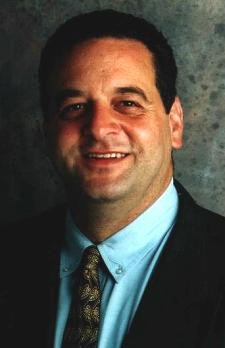Drug dog controversy wracks district - by Don Speich -Marin IJ 3/11/206
Drug dog controversy wracks district
Don Speich
Marin Independent Journal
03/11/2006 09:04:00 AM PST
Responding to widespread criticism including accusations of violating the constitutional rights of students, trustees of the Sausalito Marin City School District will hold a public hearing March 20 on the use of drug-sniffing dogs at a 38-student middle school in Marin City.
The American Civil Liberties Union has called on the district to terminate the practice, saying it violates constitutional protections against illegal search and seizure.
The NAACP has launched an investigation to determine whether the drug-sniffing dogs violate the civil rights of the students at the Martin Luther King Jr. Academy.
Under the program, children once a month for the remainder of the school year will go outside and dogs will enter the classrooms and sniff backpacks and other personal belongings.
Board President George Stratigos announced the hearing at a board meeting Thursday night attended by more than 60 people, the overwhelming majority of whom were there to protest the drug dogs.
Interquest Detection Canines of Houston began work last month when representatives introduced students to the dogs that will be sniffing until June at a cost of $2,500.
Several people, including six students, had come to speak during the "public comment" part of the meeting.
The meeting, which began at 7 p.m., had an agenda with more than 30 items, the last of which was time for public comment. It is customary for most boards to schedule public comments at the beginning of a meeting.
Trustee Whitney Hoyt moved that the public comment be moved to the front of the agenda. Trustees Shirley Thornton, Robert Fisher, and Stratigos sat silently, staring straight ahead, and the motion died for lack of a second. Trustee Tom Clark did not attend the meeting.
Stratigos attempted to reassure the parents and students by saying they would have plenty of time to speak on March 20. The well-mannered audience, most of them Marin City residents, said nothing, though eyes were rolling and heads were slowly turning side to side.
Jim Geraghty, a resident of San Rafael's Canal district, walked over to the podium and complained that by the time public comment came around the students there would be home and in bed.
Then he turned to the audience and said if there were any civic teachers at the meeting they should "use this as a model" of how democracy should not work.
Before the meeting, 12-year-old Jordan Mosely, who along with several other students was armed with placards calling for an end to the drug-dog program, said the program is needless.
"Even if there was a drug problem, this is such a small school and everyone would know," he said. "We don't need dogs."
A majority of the trustees, who approved the program in November, concede they know of no drug problem at the middle school. And, they add, that is why they want the dogs, to prove they are right.
They said that in a quest to turn the predominantly minority district into one of academic excellence they will leave no stone unturned, even if it means drug-sniffing dogs.
Thornton, a retired colonel in the U.S. Air Force, a former principal of San Francisco's Balboa High School and a former top administrator with the state Department of Education, has called schools "a hallowed ground" where nothing should stand in the way of academic achievement.
Stratigos said this week it was important to make sure there are no drugs at the school because it will give a new superintendent - expected to be hired by July - evidence that drug use will not impede a mandate from the board to make Sausalito Marin City "the best district in the county."
It is a rationale that, at least in part, prompted an investigation of the district by the National Association for the Advancement of Colored People.
Dan Daniels, NAACP statewide director, said, "They seem to be going into the school without probable cause."
Daniels as well as a representative of the ACLU attended the meeting.
---Article Launched: 03/11/2006 09:04:00 AM PST
objection: Twelve-year-old Stephen Louis (right), a sixth-grader at Bayside Elementary School in Sausalito, and angry classmates, parents and members of Community Action Marin protest the use of drug-sniffing dogs at a middle school at Thursday night's meeting of the Sausalito Marin City School Board at district headquarters on Nevada Street. (IJ photo/Robert Tong )
NEXT MEETING
The Sausalito Marin City School District Board hearing on drug-sniffing dogs at Martin Luther King Jr. Academy begins at 7 p.m. March 20 in the multipurpose room of Bayside Elementary School at 630 Nevada St. in Sausalito.

